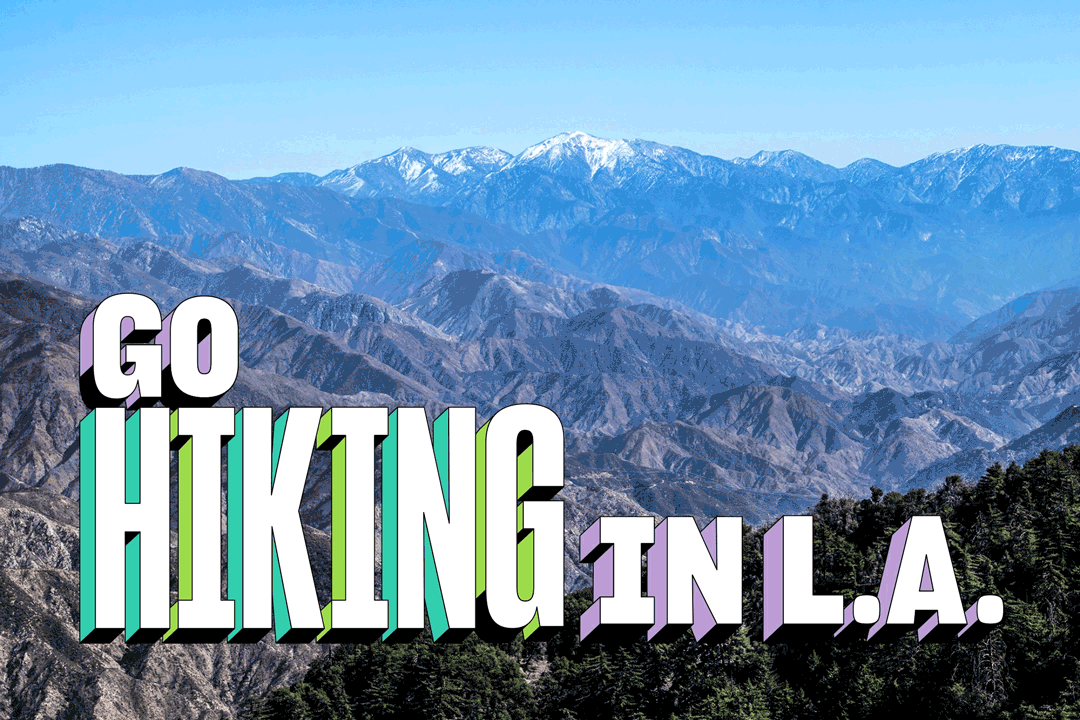Starved of recreation? Try SoCal’s newest set of trails: Ventura’s nature reserve
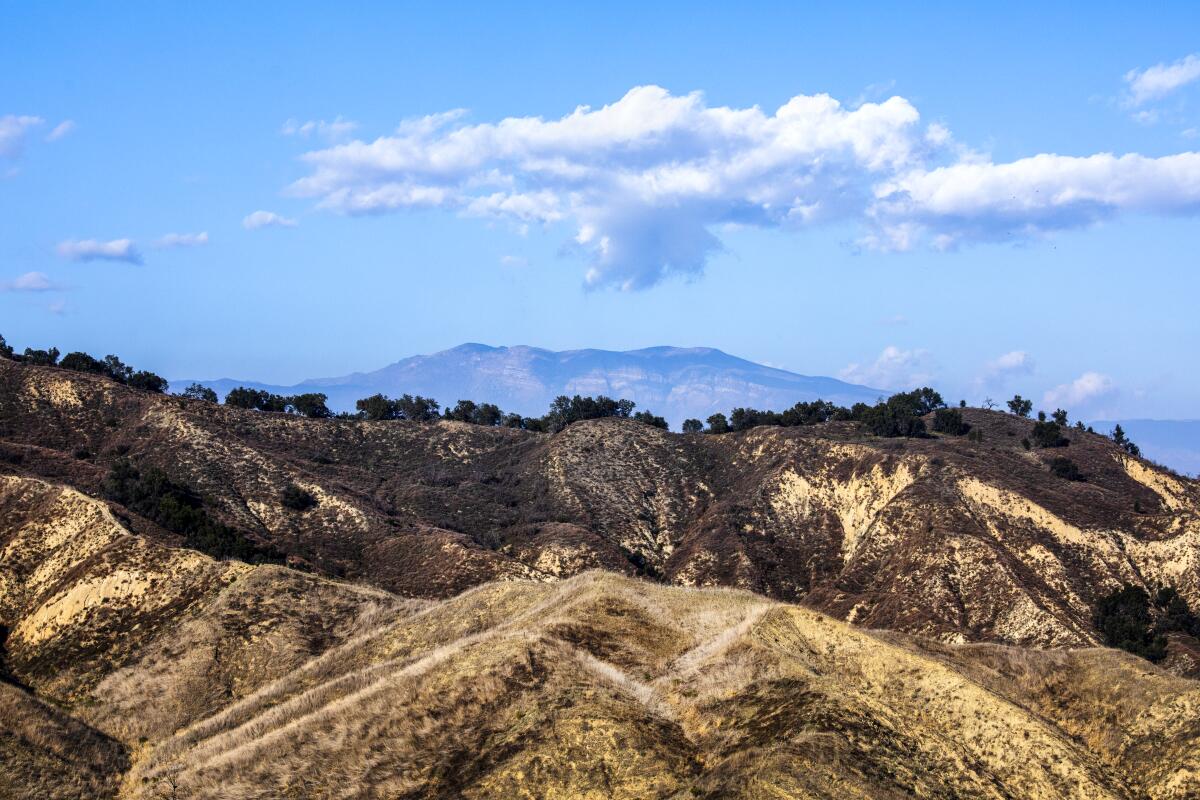
- Share via
This story is part of our ultimate guide to hiking in L.A.
The Harmon Canyon Preserve, Southern California’s newest collection of backcountry trails, is a tranquil time machine in Ventura, taking us back to what the region looked like before it was covered with farms, houses and freeways.
The 2,100-acre nature preserve opened in June, the crown jewel of the Ventura Land Trust, but during a time of pandemic and widespread Black Lives Matter demonstrations, the opening received scant notice outside the city. Nonetheless, the preserve has been busy from the start, said Derek Poultney, the trust’s executive director.
“Everybody was so starved for outdoor recreation we found the preserve to be instantly popular and very appreciated,” he said. “Before Harmon Canyon opened, Ventura people had to drive 30 to 45 miles to Ojai or the Santa Monica Mountains to get this kind of experience.”
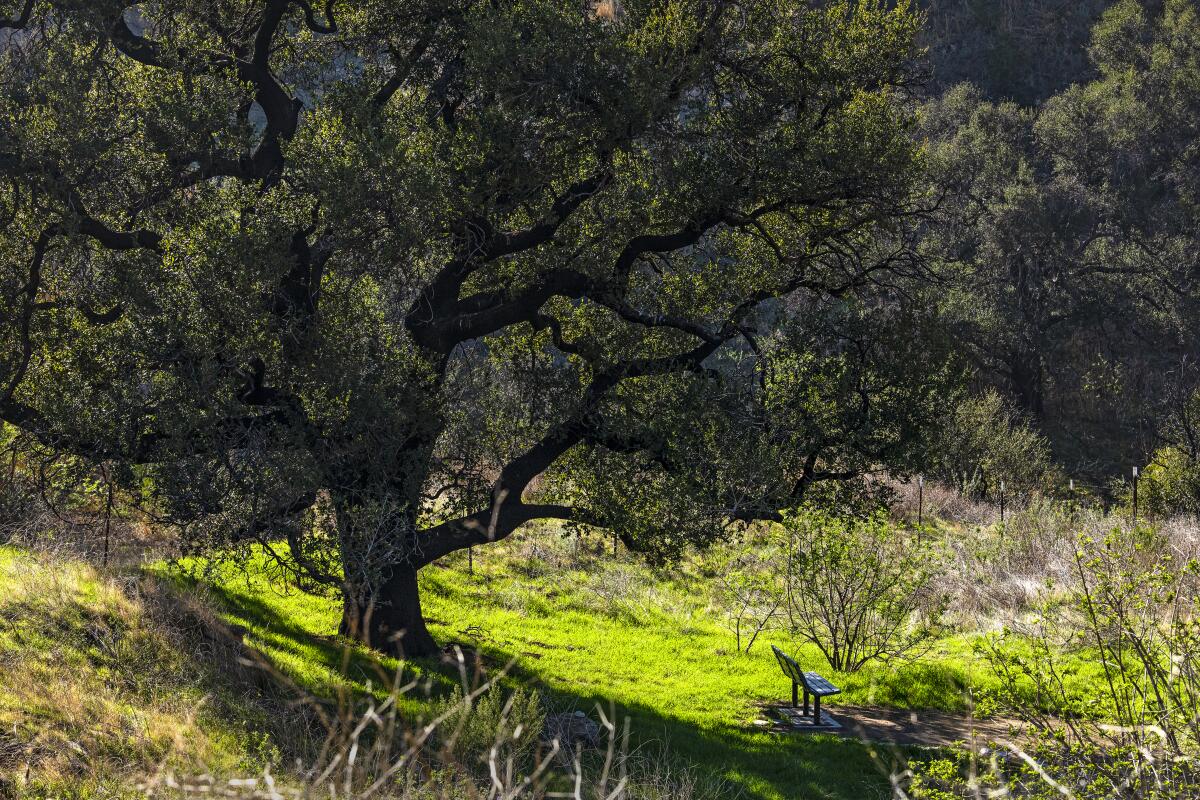
The trust has developed 10 miles of trails for hikers and mountain bikers, with a goal of adding at least 20 more miles extending to the northern edge of the preserve.
For the ambitious, the eight-mile trek up Long Canyon Road with views of the east or the 10-mile route to the top of Harmon Canyon Road involve steep, rocky trails lined with sage, giant wild rye and, in the spring, fields of wildflowers. At the top on a clear day, you’ll find panoramic views of the Ventura coastline, Channel Islands, Santa Monica Mountains and farmlands stretching east through the Santa Clara River Valley.
These are three- to five-hour round trips, depending on your speed. But if you have only an hour, the preserve has shorter, hidden-gem trails through oak groves, streambeds and meadows, where the only sounds are birdsong, crickets and the occasional tinkling of miniature cowbells (required on all mountain bikes).
This is a place of both reverie and exertion: A father gently guiding his toddler past fragrant sage and dry brown grasses that tower over her head. Runners breathing hard as they aim for the crests. Grunting mountain bikers churning slowly up the steep grade. And their gleeful counterparts streaming back down the trail, their bike bells ringing madly.
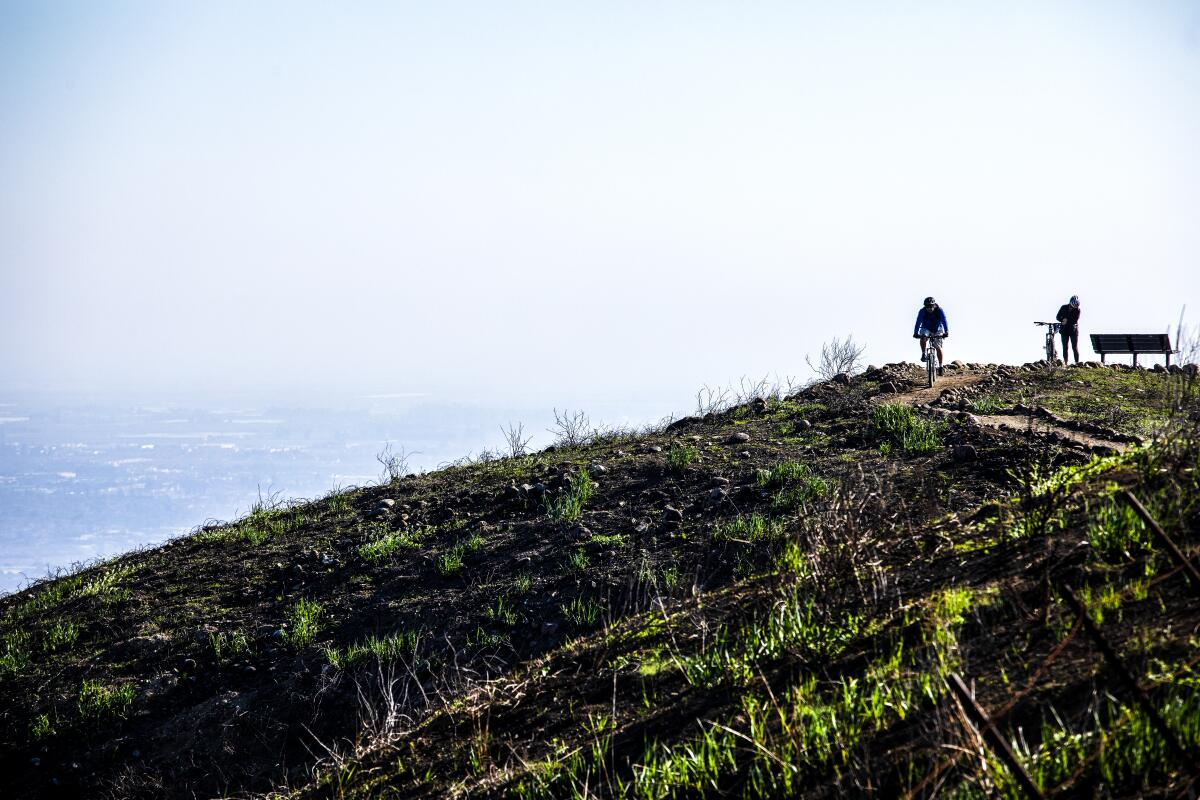
At 4 p.m. on a Wednesday, I chose the 107 trail through the oak groves, a round-trip loop of about three miles from the parking lot. The large lot was full of cars but human encounters were rare and brief.
It’s about a mile walk up the main trail to the 107 trailhead, and the road is wide enough that it’s easy to socially distance.
On the narrower 107 trail, the quiet is pervasive, almost spiritual, thanks to the oaks, ancient survivors clinging to hillsides or meadows where the soil is as much rock as dirt.
The trees all have blackened trunks, a token of the Thomas fire in late 2017, but, miraculously, their branches are green. On a short, steep climb, the trail curves around one stunted oak covered with char and lichen, with a huge hole in its trunk — and still it lives.
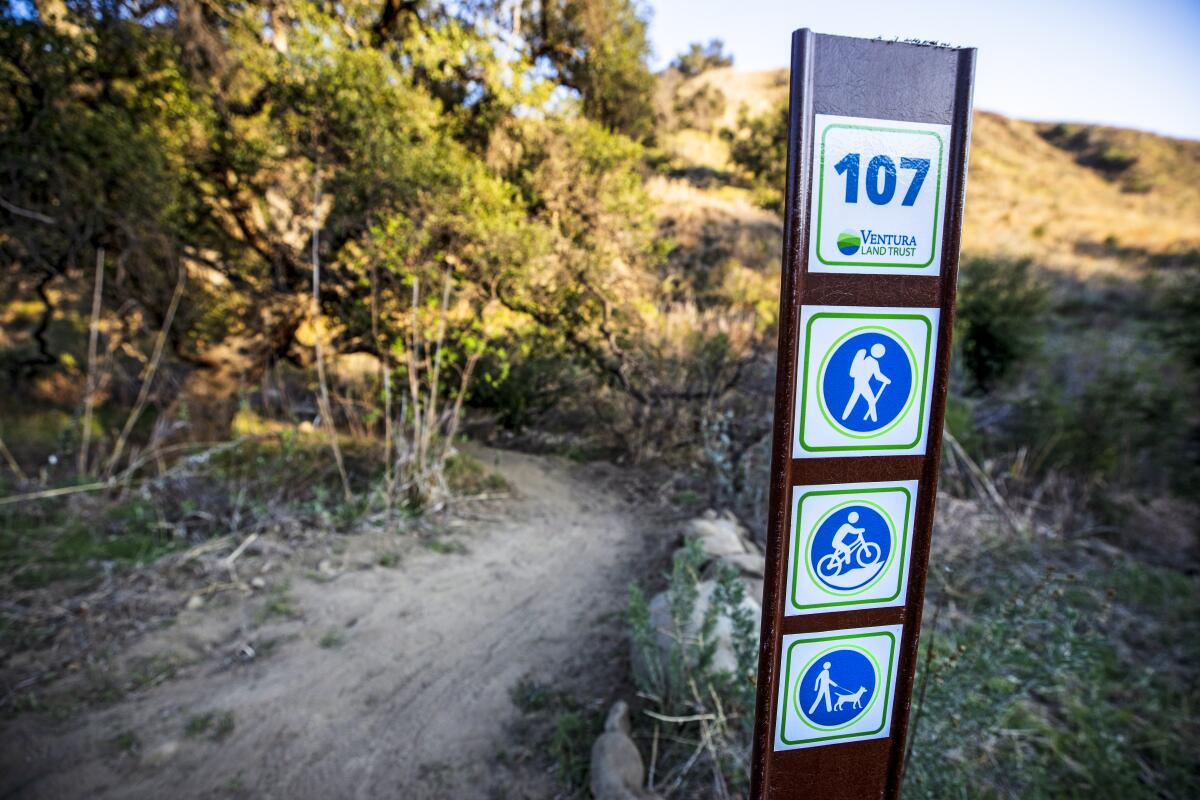
This trail follows the streambed. The stream crosses the main trail at least 13 times, said Poultney, so when water is flowing, visitors can expect to do some wading.
Free for all
The trails are free, part of the Ventura Land Trust’s mandate to hold these lands in perpetuity for public use and maintain them in their natural state, Poultney said.
The trust was born in 2003, after a contentious election in 2002 when developers wanted to build 1,200 homes on the hills above Ventura. The measure was defeated when 72% of the voters voted no, but the election and debate spawned the idea of creating a trust to preserve Ventura’s undeveloped land.
Whether you’re looking for ocean views or desert landscapes or soaring mountain peaks, Los Angeles offers miles upon miles of strikingly different trails.
Many believed the pressure to build homes in Ventura’s hills wouldn’t stop, said Brooke Ashworth, the trust’s founding president and now senior conservation advisor. “The people involved in the grass-roots campaign realized this battle would be fought over and over again unless an alternative idea prevailed,” she said. “So the idea came to form a nonprofit 501(c)3 with the goal of purchasing land and taking it away from being developed.”
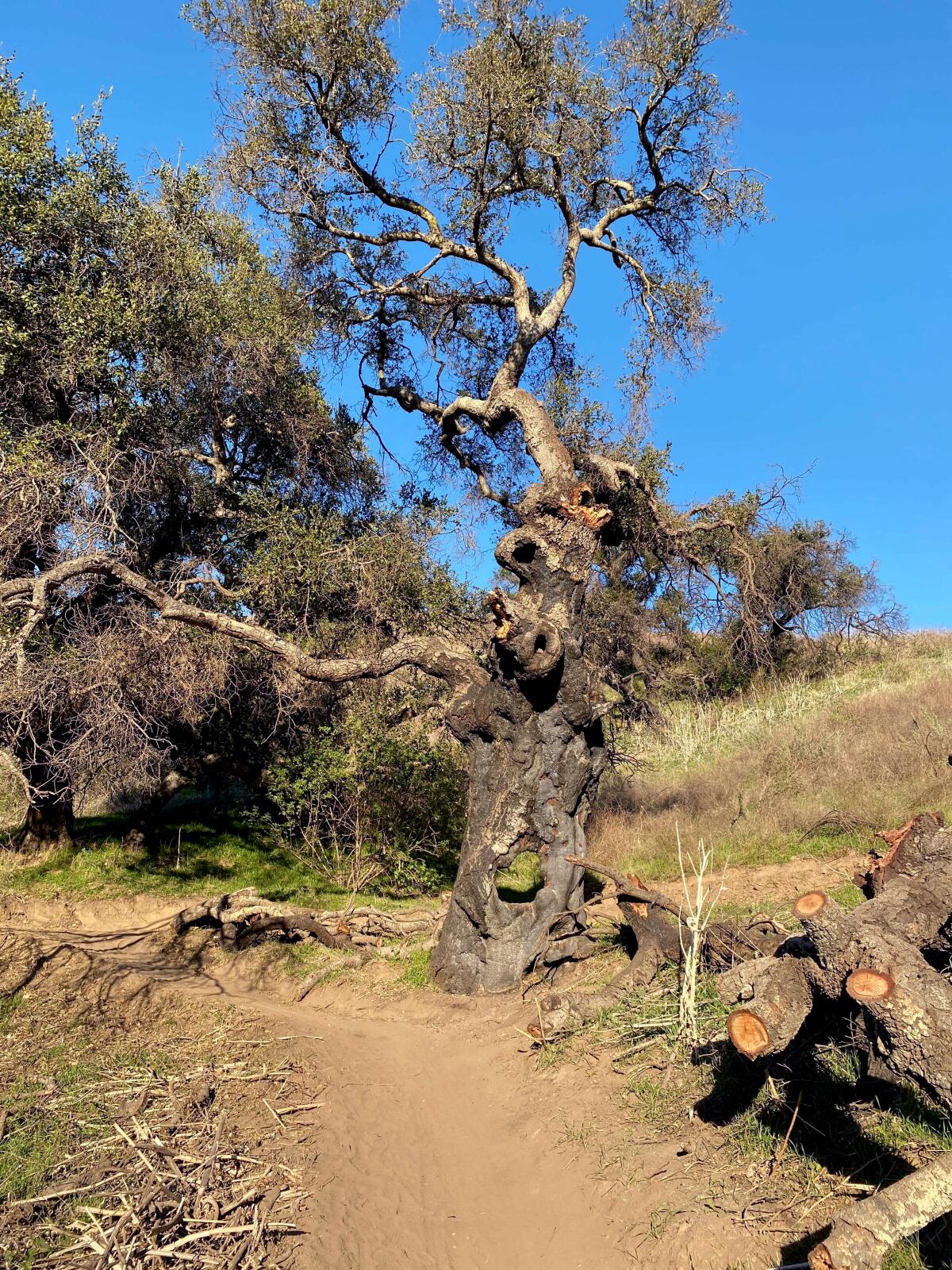
Poultney spends a lot of time asking interested hillside landowners to consider selling their property to the trust. The Thomas fire helped make the point that “our hillsides are not ideal places for housing” when it burned everything in its wake, he said.
The trust won three state grants, worth $5.7 million, at the end of 2019, to purchase the preserve’s land, once known as the Walker-Hearne Ranch. The $8.39-million sale was completed in early 2020 when the owners donated the remaining $2.69 million, he said.
Why hike in Los Angeles? Lots of reasons. Use our guide to navigate 50 trails in Southern California, plus tips on gear and treats for the trail.
Since then, the trust has been busy building trails. The preserve already had a main dirt road into the hills, which is maintained by Southern California Edison to ensure access to power lines, so the trust has been able to focus its resources on building and maintaining smaller trails, Poultney said.
There are four right now — the 101, 102, 105 and 107 — for those looking for quicker and less taxing walks. They still have plenty to offer for repeat visits. The 107 follows the dry streambed, and I found myself wondering what it would be like with water rushing after a heavy rain.
Note to self: Return to 107 after a downpour, and wear my wading shoes.
If you go
Harmon Canyon Preserve, 7511 Foothill Road, Ventura; venturalandtrust.org/harmoncanyon. Open daily from sunrise to sunset. Free parking at the preserve trailhead.
- Wear sturdy hiking shoes because these are wilderness trails, although well established.
- Bring water and a hat, especially if you plan to hike to the upper hills, where shade is scarce.
- Leashed dogs are permitted only about 1½ miles up the main road to protect wildlife. Bobcats, black bears, mule deer and mountain lions have been observed in the preserve.
- When it gets warmer, watch for rattlesnakes and hand-size tarantulas, especially late in the day.
- Wildflowers emerge through May, but peak viewing time is in April.
More to Read
Sign up for The Wild
We’ll help you find the best places to hike, bike and run, as well as the perfect silent spots for meditation and yoga.
You may occasionally receive promotional content from the Los Angeles Times.

